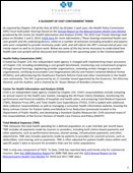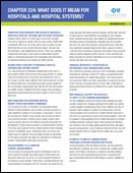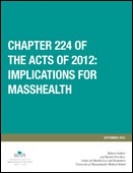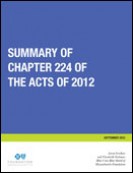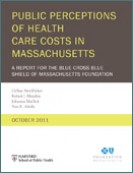Making Health Care Affordable Grant Program Final Evaluation
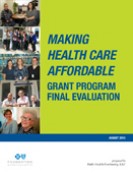
The “ Making Health Care Affordable” (MHCA) three-year grant program concluded in 2014. Margaret Houy and Kate Bazinsky of Bailit Health Purchasing, LLC report on the impact of the BCBSMA Foundation’s funding initiative. The goal of MHCA was to fund interventions aimed at containing costs while increasing access and quality of care. Bailit examines how the Foundation’s objectives were met, what factors led to successful program implementation, common barriers faced by grantees, and which programs may have generalizability.

